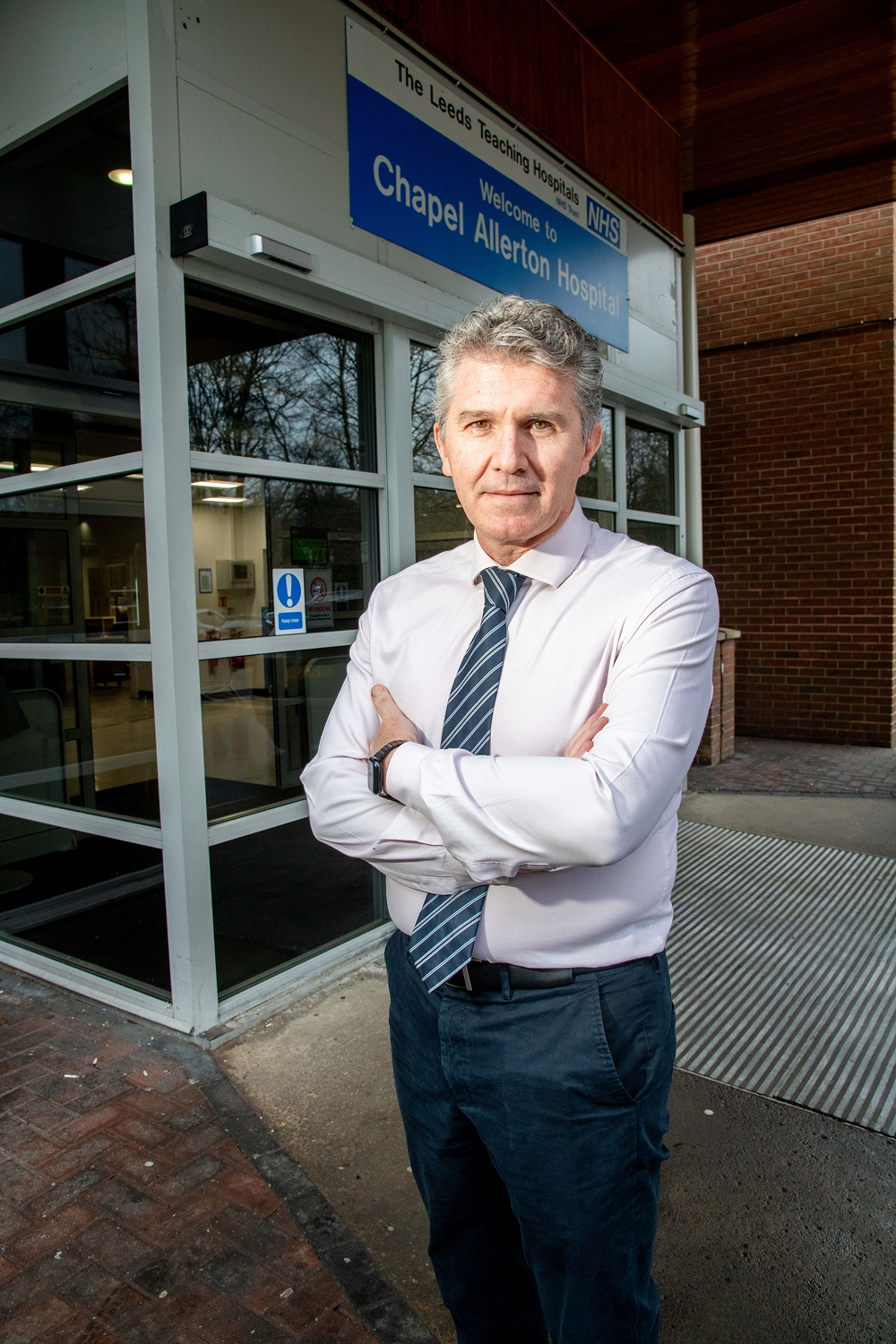Trust in the future

“I genuinely believe it’s possible to end scleroderma within 20 years,” says Francesco Del Galdo.
Francesco is Susan Cheney Professor of Experimental Medicine and Rheumatology Consultant at Chapel Allerton Hospital in north Leeds, internationally renowned for the success of its early interventions to reduce the impact of rheumatoid arthritis.
His focus is on scleroderma, an inflammatory disease that causes scarring of the skin and internal organs. And with the support of the Kennedy Trust for Rheumatology Research, he has established the first national cohort of patients at risk of developing the condition.
A public awareness campaign in Leeds saw 700 people visit a mobile clinic in Briggate, one of the city’s main shopping streets. “We were looking for people with signs of Reynaud’s Disease, which affects circulation in the hands and feet, causing the skin to change color, feel cold or go numb.
“We know that in some people, Reynaud’s can be a precursor of scleroderma. We want to explore the pathways by which the disease progresses – and could be targeted with drugs. Biological processes are leading to this damage long before patients get any symptoms, so if we can track them early, we can potentially intervene before it becomes irreversible.”
Skin and blood tests at the mobile clinic led to 70 people joining an initial research group, while the Kennedy funding extended this to 800 nationwide. The research programme has two main aims: to find tell-tale markers which identify patients most at risk of developing organ damage and to find the processes at work in those patients which have the potential to be blocked by drugs.
Professor Francesco Del Galdo hopes to end scleroderma within 20 years
Professor Francesco Del Galdo hopes to end scleroderma within 20 years
“Essentially you are looking for ‘red flags,’” says Francesco. “A patient’s blood tests will show that something is going on, but they don’t have any visible signs of the disease. We want to find people at that point where they are transitioning into disease, and ‘freeze’ them at that stage.
“At the same time, we want to look at the processes which are active in those people for whom the disease doesn’t progress. In many, their immune system is keeping it in check – similarly to how some potential cancers are held back by the immune system.”
The tests have identified some biological pathways which may result in tissue damage, and now further funding from industry is allowing Francesco and his team to examine which drugs could potentially interrupt that process. The clinical, biological and lifestyle data gathered from these patients – alongside information about which of them went on to develop scleroderma – will also become a rich resource for future studies.
“We can’t prevent this disease, but I believe that with a timely intervention we can stop it in its tracks. Then – in the same way that statins help to keep cholesterol levels down – we can transform our attitudes from caring for the sick, to ensuring that people stay healthy.”
Over a number of years, the Kennedy Trust for Rheumatology Research has supported Leeds research into inflammatory diseases. Their recent award of a £2.4m Senior Research Fellowship is supporting the work of Dr Sinisa Savic to deepen our understanding of processes underpinning immune-mediated inflammatory disorders.
